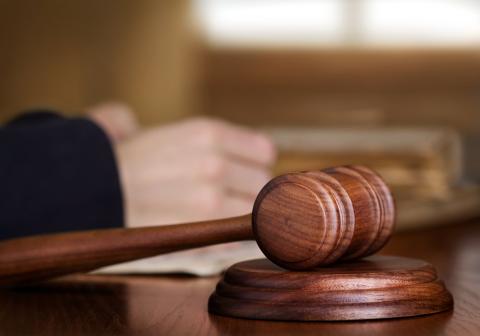The Alaska Public Offices Commission (APOC) found that an anti-ranked choice voting group attempting to sway voter attitudes away from the alternative voting method has violated multiple campaign ethics laws on the matter of a ballot initiative that seeks to overturn RCV and open primaries.
Preserve Democracy was founded by former US Senate candidate Kelly Tshibaka shortly after she lost her 2022 bid to unseat US Sen. Lisa Murkowski. Tshibaka has said her group’s sole purpose was to educate voters nationwide on the detriments of ranked choice voting and does not advocate for any specific initiative.
In its staff report, APOC states that the evidence does not support this claim, and in accordance with state law Preserve Democracy should have registered with APOC over its support of a ballot initiative sponsored by Alaskans for Honest Elections (AKHE) to eliminate the state’s voter-approved nonpartisan primaries and ranked choice voting systems.
Here is what APOC found:
The creation of both groups, Preserve Democracy and AKHE, were timed so closely together that it was reasonable to conclude that at least part of Preserve Democracy’s goal was to support AKHE’s ballot initiative.
“PD was created on December 6, 2022, and PD’s website ‘went live’ on December 19, 2022, – 26 days after 22 AKHE was filed with the Lieutenant Governor. The website announced that PD was ‘fighting the spread of Rank Choice Voting,’” APOC’s staff reported.
The report adds:
“The website was subsequently revamped on January 23, 2023 – three days after 22AKHE was certified by the Lieutenant Governor. The revamped website proclaimed ranked choice voting is a political weapon and an emerging threat to democracy; and that ranked choice voting confuses voters, escalates negativity, increases costs and results in voter suppression.”
There were also explicit remarks made by Tshibaka. A day after petition booklets were issued for AKHE she was asked at a Bell’s Nursery event if there was coordination between Preserve Democracy and AKHE, and she said “yes.”
On February 13, she attended an Alaska School of Government event, during which she described 4 ways ranked choice voting could be attacked – including “Do a ballot initiative – ‘please sign it.’”
Tshibaka added that “we can’t let the narrative get away from us so that nine months from now when we go yeah, we got the signatures, it’s on the ballot, we also have been inundated with propaganda about how great ranked choice voting is and there is no counter message.’”
APOC’s conclusion:
“[B]ased on the timing of the creation of the website; the content of the website message; and the remarks of Ms. Tshibaka at the Bell’s Nursery and Alaska School of Government events, that PD’s website was an express communication from the date of creation through February 27, 2023, because under all the circumstances it was susceptible of no other reasonable interpretation but as an exhortation to support the 22AKHE petition.”
Read the full findings and conclusions here.
What Happens Now?
The APOC’s staff report comes after complaints were filed against Tshibaka and Preserve Democracy by Alaskans for Better Elections, the group that spearheaded the campaign to adopt a nonpartisan top-four primary with ranked choice voting in the general election.
Alaska used its new voting system for the first time in the 2022 midterms. Under a nonpartisan top-four primary, all voters and candidates participate on a single primary ballot and the top four candidates, regardless of party, move on to the general election.
Voters then have the option to rank the 4 remaining candidates in order of preference (1st choice, 2nd choice, 3rd choice, etc.). If no candidate gets a majority of first choice selections, a runoff is held that eliminates the last place candidate and applies their voters' next choices to the results.
Subsequent rounds of runoff are held as needed until a single candidate has a majority.
APOC’s staff investigated claims made against Preserve Democracy over the course of 6 weeks. In the end, they agreed with some of the allegations, and disagreed with others. But overall, they concluded that Preserve Democracy had to register with the state.
The report will now go to the full commission to make a determination. If Preserve Democracy has to register with the state, by law they will have to disclose funding sources and expenditures – which it hasn’t had to do as a nonprofit organization.
APOC commissioners are scheduled to meet again on September 28. Tshibaka’s legal team has already stated that if the commission does not decide in their favor they will appeal to the Superior Court and the state Supreme Court if needed.
In the meantime, APOC’s staff is still investigating complaints filed by Alaskans for Better Elections against AKHE, which assert that the leaders behind the anti-RCV and open primaries initiative formed a church to illegally funnel tax-free dollars toward their effort.
